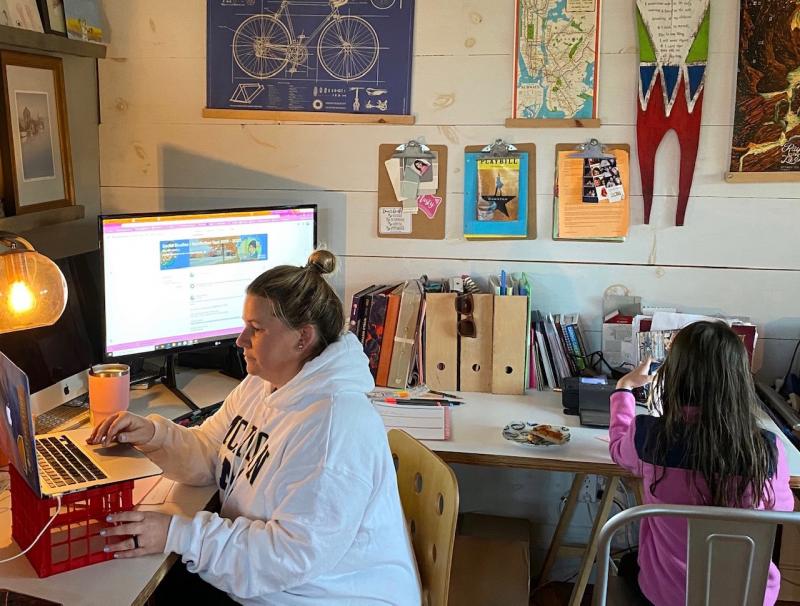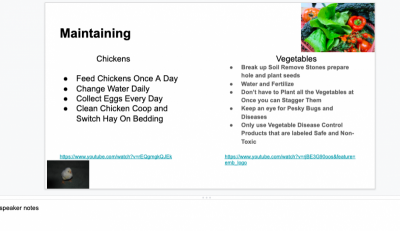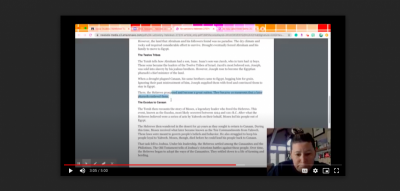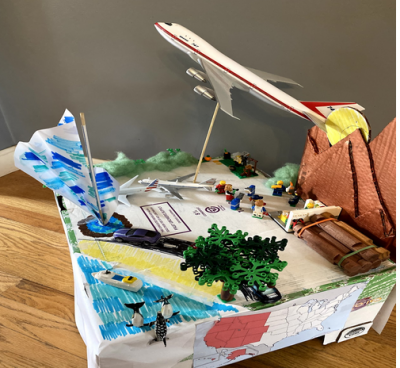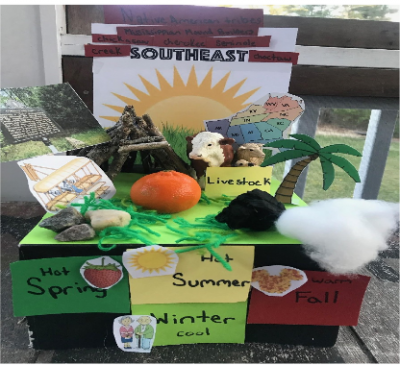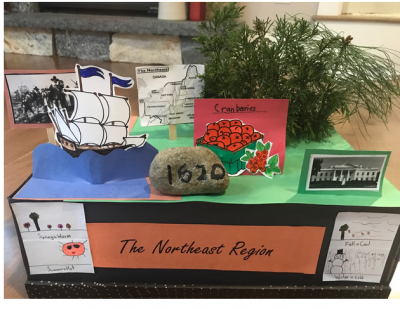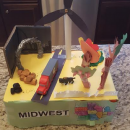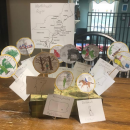Elementary schools spread knowledge, allow connections through screens
With each announcement that reopening school would be pushed back even further, Old Hammondtown School sixth grade social studies and nonfiction literature teacher Sara Jacobsen said she experienced “waves of grief” at the thought of losing time with her students.
Now, almost two months into remote learning, elementary teachers in Marion, Mattapoisett and Rochester are starting to replicate from afar the classroom dynamic.
Jacobsen’s lessons have morphed into a combination of assignments and pre-recorded lessons with intermittent Zoom meetings to keep student interaction alive. All of it is done using Google Classroom, YouTube, social media and resources she has found across the web.
She has noticed her students’ decision-making skills have increased because they now must make their own schedules for the day after receiving daily assignments every morning.
When Jacobsen assigned a student choice project on the characteristics of civilizations, she was blown away by the responses. One student focused on food production and presented on how to run a chicken farm, while another student presented on how to improve school lunches.
Teachers throughout the state are now introducing new concepts to their students, in contrast with just reviewing old material like they had previously done. This presents new challenges though.
“It’s easy to teach about the ancient Egyptians because they’re all dead,”Jacobsen said, but it’s harder to talk remotely about the Israeli-Palestinian conflict when discussing the ancient kingdoms of Israel.
Fourth grade teacher Beth Hemenway at Rochester Memorial School has seen the struggle with online teaching change over time. At first, it was parents who had a hard time keeping track of all the passwords for multiple platforms. Now that the password struggle is over, she has to focus more on keeping kids motivated to learn so it doesn’t get monotonous.
Hemenway finds it difficult not to take questions on new content. She has remedied this by setting up small-group Zoom sessions with four students to review or preview content, or even doing one-on-one sessions in addition to pre-recorded lessons.
Both teachers have noticed students are struggling socially as well. Hemenway had to explain to her son in first grade why he can’t play in Little League this year, while Jacobsen had to email parents to ask about their child when she thinks that a student is hiding their loneliness.
Maintaining student interaction and teaching social skills is a challenge that Sippican School Kindergarten teacher Lisa Horan faces at her grade level.
With only three hours of learning a day, she has to fit in a mix of literacy, math and phonics lessons with student interaction time over Zoom.
Horan meets with small groups of students twice a week, and as a whole class of 18 students on Fridays.
“It’s a very natural thing to share,” said Horan, so she makes sure to start every Zoom call with sharing time to encourage students to socialize. On her Google Classroom page, she posts a daily Q&A for students to comment on so that they can go back and forth with each other.
Playtime is a huge part of learning, she said. To incorporate play into lessons, Horan recently had students in a Zoom call quickly find an object in their house that started with a certain phonics sound. She was a little nervous about how it would go, but she soon found that the students were having a blast.
Hemenway feels bad for her students because they are not used to picking up the phone and calling friends the way adults do. She said they enjoy joint specialty classes like gym, art or band because they can see their friends from outside their class.
One thing she has enjoyed is getting to know the parents and have more interaction with them. A lot of times, she can relate because they have shared struggles. “I am trying to support them, but then we are also in the same situation and the same thing happens in my own house.”
Jacobsen has been able to see the resilience of her students in this situation. She said that they are still forging ahead, knowing that their rite of passage events, like the sixth grade boat dance or yearbook day, won’t be happening in June.
“We will never take laughing on a Tuesday morning in February for granted ever again,” said Jacobsen.
Horan misses these small moments too, such as hearing her name called 100 times a day. In her 19 years of teaching, she always knew she loved her job, but because of this time away, Horan said that it has “really made me know I love it.”



